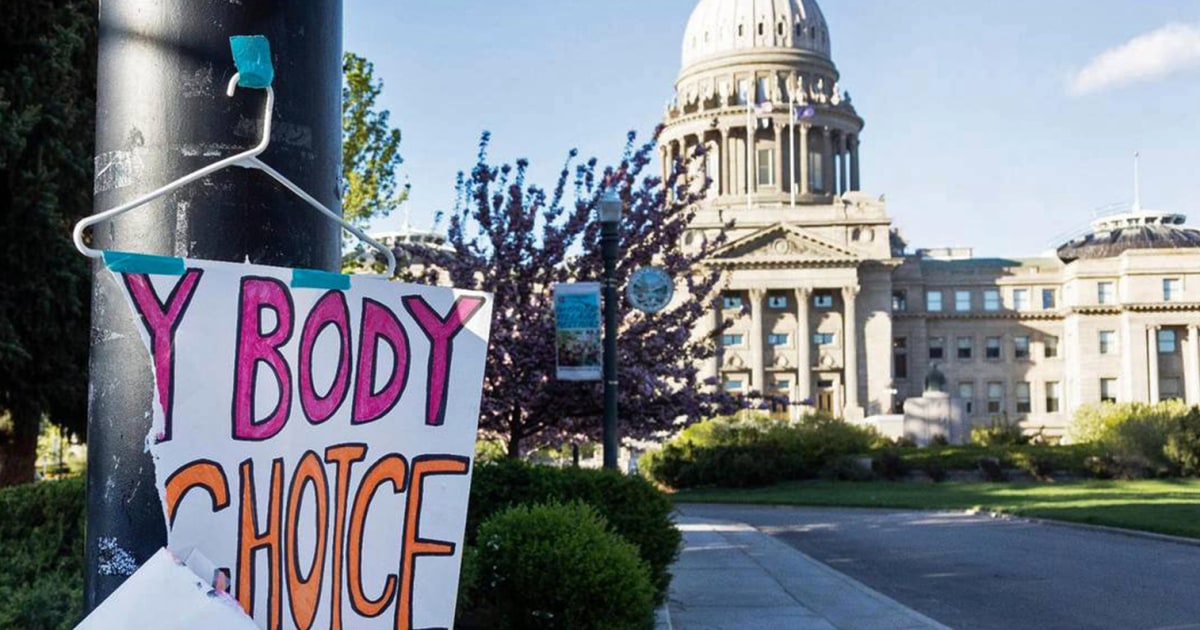The Supreme Court on Friday allowed Idaho to enforce provisions of a strict new abortion ban that could penalize doctors who perform the procedure in emergency situations.
The court granted emergency requests filed by Idaho state officials, putting on hold a federal judge’s ruling that said the provisions conflict with federal law.
The court also said it would hear oral arguments on the issue in April and issue a ruling by the end of June.
Other provisions of the near-total abortion ban were already in effect.
The state abortion law was enacted in 2020, with a provision stating it would go into effect if the Supreme Court overturned Roe v. Wade, the 1973 ruling that found women had a right to end a pregnancy.
The law, called the Defense of Life Act, therefore went into effect when the Supreme Court in 2022 rolled back the ruling that guaranteed a constitutional right to abortion.
It declares that anyone who performs an abortion is subject to criminal penalties, including up to five years in prison. Health care professionals found to have violated the law can lose their professional licenses.
There is an exception if the abortion was necessary to protect the life of the pregnant woman.
The federal government sued, prompting a federal judge in August 2022 to block the state from enforcing provisions concerning medical care that is required under the Emergency Medical Treatment and Labor Act (EMTALA).
The 1986 law requires that patients — including, the federal government says, pregnant women with serious complications — receive appropriate emergency room care. The law applies to any hospital that receives federal funding via the Medicare program.
In blocking parts of the state law that conflict with federal law, U.S. District Court Judge Lynn Winmill described the state’s actions as putting doctors in a difficult situation.
“The doctor believes her EMTALA obligations require her to offer that abortion right now. But she also knows that all abortions are banned in Idaho. She thus finds herself on the horns of a dilemma. Which law should she violate?” he wrote.
The San Francisco-based 9th U.S. Circuit Court of Appeals briefly put Winmill’s ruling on hold in September, but subsequently allowed it to go back into effect, prompting the state officials to turn to the Supreme Court.
The state officials argued that the two laws are not in tension, in part because the federal law does not specifically say that doctors are required to perform abortions in certain circumstances.
Solicitor General Elizabeth Prelogar, representing the Biden administration, disagreed, saying in court papers that the Idaho law “criminalizes care required by federal law.”
President Joe Biden said in a statement Friday that the overturning of Roe v. Wade “has enabled Republican elected officials to pursue dangerous abortion bans like this one.”
He also called on Congress again to “restore the protections” of the landmark Supreme Court case that was overturned in 2022.
“These bans are also forcing doctors to leave Idaho and other states because of laws that interfere with their ability to care for their patients,” Biden said. “This should never happen in America.”
Earlier this week, the New Orleans-based 5th U.S. Circuit Court of Appeals ruled for Texas in a similar case in which the state was seeking to enforce strict abortion restrictions.


